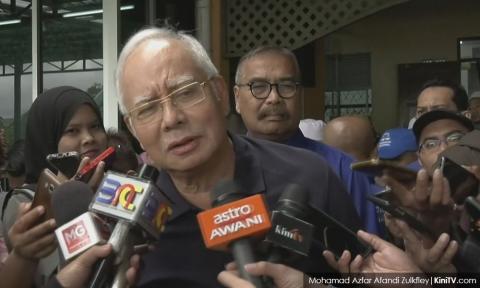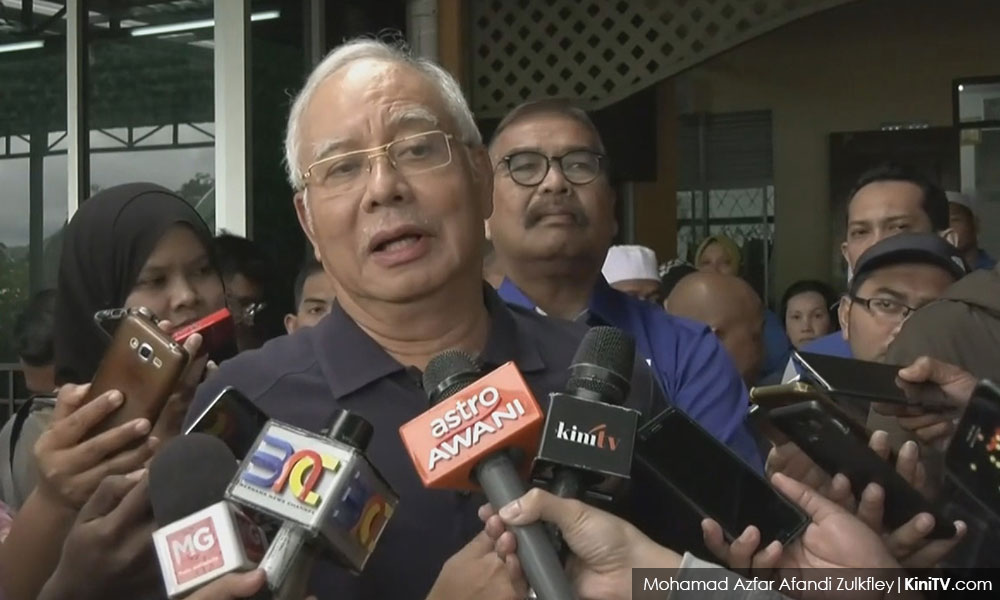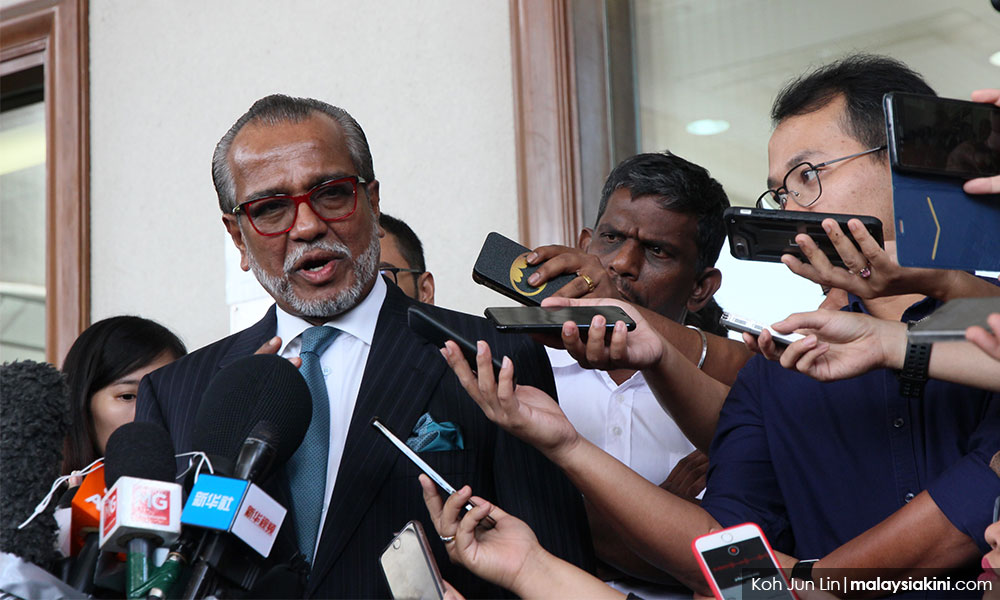
Former Bar Council chairperson Ragunath Kesavan described the current concept of “sub judice” in the Malaysian context as “subverting a judicial process”.
In simple terms, sub judice refers to a matter being under judicial consideration.
In an interview with the now-defunct Nut Graph in 2009, Ragunath explained that it was “a creature of the past”, a leftover from an era when the outcome of Malaysian court cases was decided by a jury.
“It was relevant in jury trials. You don't want a jury to be swayed by external pressure or undue influence,” he said.
“Judges are trained in the law. They have been sitting on the bench for years. It would be unlikely for them to be swayed by public discussion,” Ragunath was quoted as saying.
The same principle was applied by the Federal Court judges when lawyer Muhammed Shafee Abdullah tried to cite this writer for contempt in the case involving former Selangor menteri besar Dr Mohd Khir Toyo.
I had written a commentary before his appeal against sentence and conviction was heard, which Shafee then brought to the attention of the judges.
“This article was calculated to appear before the decision, probably to prejudice and cause irreparable damage to proceedings,” Shafee had told the judges.
“None of these reports, either here or other reports, influenced us at all,” Chief Judge of Malaya Zulkefli Ahmad Makinudin said before he went on to deliver the five-man panel’s unanimous decision.

When it comes to writing or commenting on pending court cases, journalists have the rather difficult exercise of striking a balance between freedom of expression and ensuring that reputations of those involved in cases are not prejudiced.
But when one party opens up and disavows the rule for convenience, then it becomes a free-for-all and entreating the sub judice rule becomes no longer applicable. Whether self-incrimination occurs is for the people to judge and decide.
When an accused person decides to comment on pending cases, including his line of defence and pleadings of innocence, the journalist has little to worry about when it comes to providing contrasting commentaries or views.
The RM2.6 billion 'donation'
Former prime minister Najib Abdul Razak has commented irrepressibly on his own cases, with the media giving it fair coverage. Then, when he suddenly plays the sub judice card and refrains from addressing new issues which surface, what conclusions can the journalists come to?
Yesterday, he declined to comment on the latest revelation in the US Department of Justice's (DOJ) 1MDB-related filings, citing sub judice.
“I cannot comment as it is in the court," Najib said, citing the sub judice rule. He had been asked to comment on claims by the US Department of Justice (DOJ) that US$681 million from Tanore Finance Corp went to the account of “Malaysian Official 1 (MO1)” under false pretences. Previously, it was established that MO1 referred to Najib.
Najib has maintained that the US$681 million, which is equivalent to RM2.6 billion based on the exchange rate at the time, was a donation from the Saudi royal family.

When he was first charged in August last year, his lawyer Shafee (photo) made a valiant but vain attempt to gag the media on matters related to the criminal charges Najib faced.
The High Court dismissed an application by Najib to prohibit the media from discussing the merits of the criminal cases against him.
Shafee submitted that the media furore surrounding his client’s alleged criminal wrongdoings and the resulting public backlash had presupposed the guilt of his client.
Shafee claimed that the present administration – namely Prime Minister Dr Mahathir Mohamad, Finance Minister Lim Guan Eng and political secretary to the finance minister, Tony Pua – have weighed in on the case and continually “supported the public's call for blood”.
However, Justice Mohd Nazlan Mohd Ghazali dismissed the application, given that it was unsustainable as there were existing laws available to counter concerns.
“Those who overstep (in reporting) risk action being taken – such as contempt of court – and these remedies are readily available,” he said.
Since then, both Najib and the media have been writing and commenting on the charges. Najib has continued proclaiming his innocence, citing various reasons and supposed facts.
Last October, he was still repeating his Arab donation mantra, which had been demolished and destroyed by a spate of revelations by the DOJ and other international agencies.
“The money was basically from the Saudis and it was used for election purposes. What happened outside, in terms of the other monies, will be subject to further investigation. I am on record to say that I don’t condone any wrongdoings… I had no intention of spending it in a lavish way,” Najib told the Financial Times.
Now, with more heat coming from the DOJ and other sources, Najib has conveniently sought to use the sub judice rule to self-impose a gag order on himself. The ‘fib’ of the money coming from the Saudis was no longer in use on Monday.
So, has he taken the stand that he can address any issue on cases pending in court which are either suitable or favourable to him, and invoke the sub judice rule when he is caught with his pants down – and unable to provide plausible answers?
Could someone tell him that “What's sauce for the goose is sauce for the gander”?
R NADESWARAN hopes that our politicians can at least be consistent if they can’t be convincing. Comments: citizen.nades22@gmail.com - Mkini



No comments:
Post a Comment
Note: Only a member of this blog may post a comment.